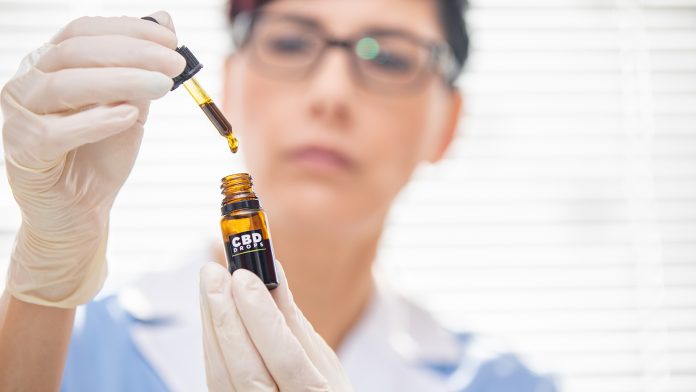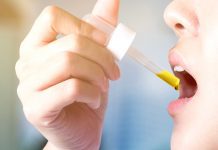
Dr Sari Prutchi Sagiv, CSO of Stero Biotechs, explains why CBD could be a potential treatment for chronic spontaneous urticaria.
Urticaria can be caused by practically anything, from sunlight to insect stings or a bad reaction to medication, all the way to Parmesan cheese!
But those dreaded recurring swollen welts, wheals, spots or blotches, red-, pink-, white-, or skin-coloured, in any form, shape, or size – chronic hives or chronic spontaneous urticaria (CSU) – are a common, highly vexing condition whose cause remains unclear.
CSU is an old, unpredictable disease. It is easy to diagnose but hard to manage, affecting about 0.5-1% of the population at any given time. It is deemed chronic when it lasts for over six weeks despite various treatments administered. Typically, it lasts between one and five years or longer and can manifest itself together with angioedema, a skin reaction characterised mainly by an abrupt, short-lived swelling of the skin and mucous membranes. In addition to physical discomfort, it is often accompanied by sleep deprivation which influences patients’ emotional state and is detrimental to their quality of life.¹
Two thirds of cases are spontaneous, affecting mainly the 20-40 age group, and generally more common in women, older children, and adolescents.
Itching, burning, or stinging result when urticaria appears in different places, even on the face, lips, tongue, throat, and ears, as small individual patches or plaques covering large areas of skin. In rare cases, it may also present joint pain, some fever, digestive problems, and infrequently, edema.
In most patients, the underlying cause or inciting factor are hard to identify, which prevents caregivers from finding a curative therapy. Development of the disease varies in each individual, and the options physicians have to offer are limited.
Even though the exact cause and mechanism are unknown, the immune system seems to play a critical role in triggering the disease and therefore treatments often include anti-inflammatory agents such as steroids.
This is what led STERO Biotechs to begin looking for new ways of providing relief to these patients. In 2018, Israel-based STERO was granted a patent covering the use of CBD for reducing steroid doses or getting patients off them altogether in over 130 autoimmune and inflammatory diseases. The company was established in partnership with Mor Research Applications, the technology transfer arm of CLALIT Health Services, the world’s second largest HMO.
The options available today
Antihistamines are used today as the standard to treat the symptoms, yet they are effective in less than half of the cases. In doses four times higher than guidelines, they bring further improvement, but still leave one in three or four patients symptomatic.
When antihistamines fail, these patients have limited options, one of which is oral corticosteroids. These act systemically at various levels by suppressing the formation of antibodies. They have a strong anti-inflammatory effect and are also known to decrease the production of histamine-releasing factors. However, they are known to cause a host of negative, sometimes serious side effects, when used for long periods of time, leading to higher total healthcare costs. Physicians rely on the shortest possible administration of corticosteroid treatment, and even then, urticaria often flares when treatment is stopped, requiring additional courses.²
Other treatment options are expensive, have limited effectiveness or have many side effects. This leads many patients to seek more natural alternatives that might work ranging from ginger to fish oil!
Can CBD be an option for CSU?
CSU results from the pathogenic activation of immune cells named ‘mast cells’ and ‘basophils’, which release proinflammatory mediators and histamines that result in urticaria. It is thought that the pathologic activation of these cells takes place via two major mechanisms: intracellular signalling defects, which may account for some cases of CSU, and autoimmune mechanisms, which is the more widely accepted hypothesis to explain the sudden aggressive activation of these cells. Up to 45% of cases of CSU might be autoimmune in origin.³
Although the mechanism is not well understood yet, it is here that CBD might help. CBD has not been shown to regulate mast cell secretion of histamines, but it has been shown to play a role in reducing inflammation and helping regulate the immune system. Cannabinoids impair the activation of T-cells, a type of white blood cell that increases antibody response and activation. Active T-cells can lead to an increase in histamines secretion. Blocking this process can reduce CSU.
Interestingly, until now, no notable studies have been performed addressing the effect of cannabis or CBD on CSU, whether taken orally or topically.
Let’s look at the case of a 27 year-old man with recurrent episodes of urticaria and angioedema from age 19. As published, initially, he responded to steroids and antihistamines, but every time he was taken off the treatment, serious attacks recurred. At some point, the patient reported that he used cannabis recreationally and that during these periods he was free of attacks. Consequently, it was decided to try a course of inhaled cannabis to modulate the immune cell functions. This resulted in a complete response, and he has been free of symptoms for two years. Once, when the inhaled cannabis was withdrawn, it led to a recurrent attack within a week, while resuming cannabis maintained the remission, suggesting a cause and effect relationship.4
STERO Biotechs is conducting a trial in severe chronic steroid-dependent urticaria patients, in order to evaluate whether oral CBD can be used as a steroid sparing solution.
So far in the trial, patients with chronic urticaria taking CBD who were previously on steroids, are no longer taking them. They are also using lower doses of antihistamines. Preliminary results show that severe patients not only are now free of steroids but also show improvement, as indicated by lower urticaria scores (assessed with the seven-day Urticaria Activity Score (UAS7), a simple, validated scoring system based on the assessment of key urticaria signs and symptoms). This ongoing study that will include 20 patients is so far showing promising results, giving hope to millions of patients around the world whose lives can sometimes be destroyed by this annoying condition.
References
1: Ladoyanni E; ‘Urticaria – Diagnosis and Management’; 2021 (book chapter)
2: Ledford D. et al; Allergy and Asthma Proceedings, 2016, Volume 37, pp. 458-465(8)
3: Bracken S. et al; Front. Immunol., 2019
4: Frenkel A. et al; Case Reports in Immunology, vol. 2015, Article ID 780824
This article is from issue 19 of Health Europa Quarterly. Click here to get your free subscription today.










